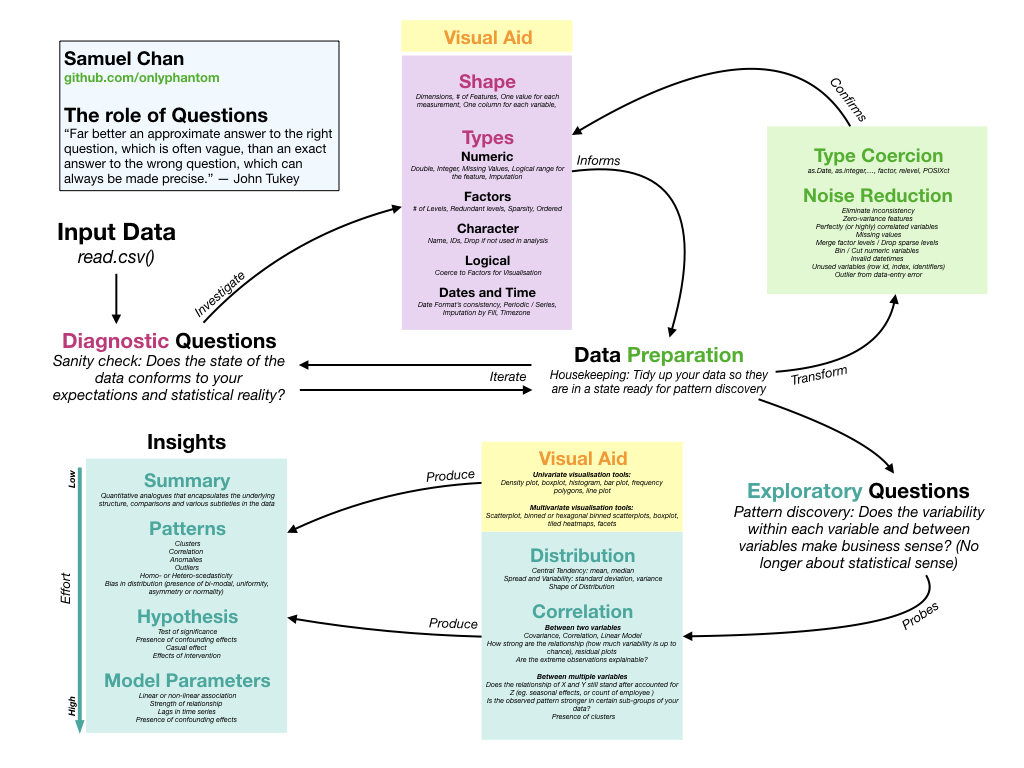Tactical data science zooms in on the mental models behind common data preparation tasks, and aim to equip beginning practitioners with some practical advice on wrangling data in a productive manner. The 6 main takeaways are illustrated in both R and Python code, using a real world dataset.
- Favor a problem-solving style that is efficient and yields a short feedback cycle
- Isolate contexts by diagnosing your data before exploring it
- Diagnostic questions are sanity checks. They asks: "does the state of data conform to my expectations and statistical reality?"
- Exploratory questions are concerned with pattern discovery. They asks: "how can the information in the data be applied?"
- Incorporate prior knowledge and domain knowledge in your data preparation tasks
- Syntactic equivalence != Logical equivalence
All example code are provided in R and Python, but only basic familiarity in both language is assumed.
- Date: 27 November 2019
- Venue: Gedung Pusat Perfilman Usmar Ismail, Jl. H.R Rasuna Said
- Delivery: English
- Date: 13 December 2019
- Venue: Kembali Innovation Hub, Kuta
- Delivery: English
To earn a badge of completion, attempt the quizzes on https://corgi.re. Corgi is an aggregation tool for courses on github (hence the name) with a primary focus on data science and computer programming.
Link to earn a badge: Tactical Data Preparation | Corgi
